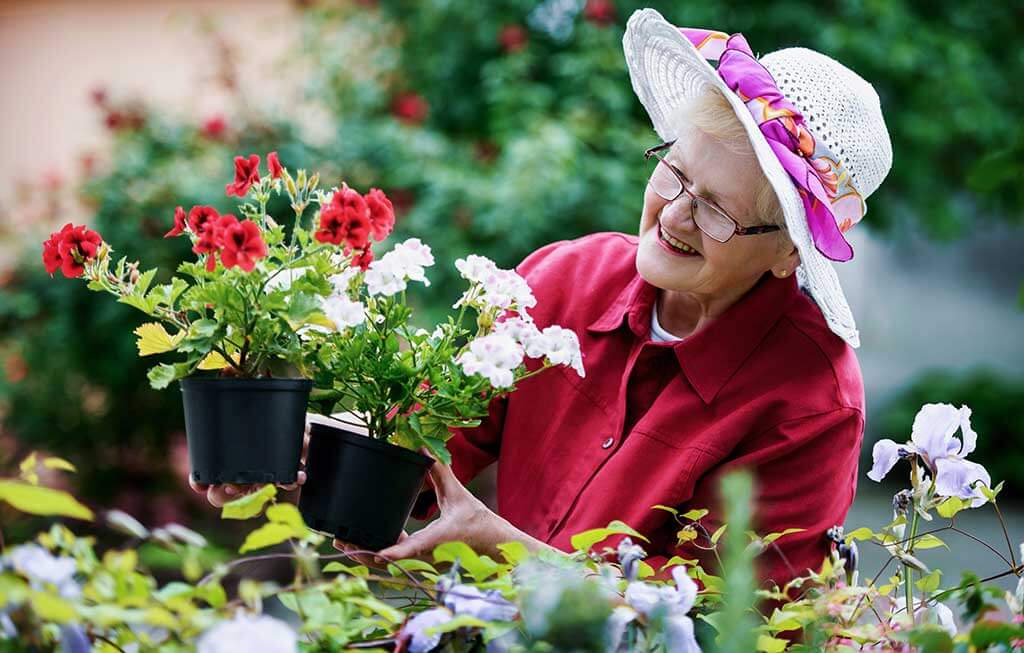Gardening is a peaceful activity that allows seniors to improve both their physical and mental healths. It is also a flexible hobby, meaning that your loved ones can choose the part of the garden they wish to work on and create a schedule for themselves. With no limit to what can be achieved in the garden, your loved ones can all reap the benefits of this activity, regardless of their medical histories. Learn how gardening for seniors can be therapeutic.
Benefits of Gardening
Gardening helps build an infallible relationship with nature as plants give us the oxygen that keeps us alive. Similarly, when we exhale, we give plants carbon dioxide – a chemical they need to survive. Although friends can get in fights, the flowers your loved ones grow will maintain a reciprocal relationship for as long as they’re properly cared for. When our brain and body are in sync, our minds clear. By staying engaged with gardening, seniors can focus on the task at hand. Being out in the sun helps increase vitamin D take, while also giving your loved ones enough activity to stay physically fit: they can expect to burn up to 400 calories an hour from pulling and planting weeds!
How to Garden Effectively
Like any skill, planting is an art form that can maximize your loved ones’ happiness when done properly. If your loved one has mobility issues, consider installing a ‘mini-garden’ by their bedside. Something as simple as a palm-sized plant pot with a seed plant would still allow seniors to nurture a loving relationship with nature. It’s important to teach your seniors the two basic ingredients that all plants need: water and natural light. If your loved ones are able, encourage them to put gloves and solid shoes on before gardening. Your senior family members may feel empowered by this and develop a connection between the clothes and the activity in a way that strengthens their memories! Try to get your loved ones to only garden in the mornings and evenings, as this is when outside temperatures will be the coolest. Last but not least, make sure that seniors are hydrated, and keep chairs in the garden so they can take regular breaks.
How to Garden Safely
Even a few minutes spent outside can be dangerous. Here are ways your loved ones can stay safe in the sun:
- Even when the sun isn’t scorching hot, UV radiation can cause the skin to become red and burn. Have a first-aid kit close at hand and ensure that your loved ones wear sunscreen.
- Keep gates secure to prevent unwanted pests from entering.
- Educate seniors on the whereabouts of the garden’s toolbox or toolshed so that they can return items to their proper place at the start and end of any gardening activities.
- Consider setting a timer for your loved ones, so they know when to stop.
Observe Positive Changes
Over time, your loved ones’ exposure to this fun and independent activity can reap benefits for the whole family. You may notice that your family members start to become more talkative, or that they are more receptive to breaking out of a fixed routine. These are all positive changes that you can cherish and are often triggered by ‘gardening therapy’. When seniors start gardening, a joyful community is a guarantee.







